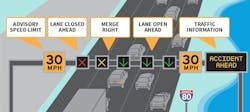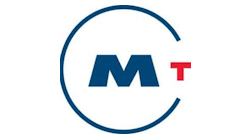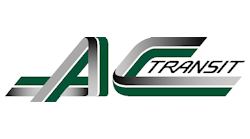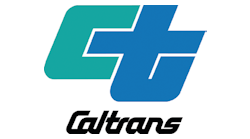High-Tech Intervention Aims to Smooth I-80 Traffic Flow in California
Caltrans, the Alameda County Transportation Commission and the Contra Costa Transportation Authority this month will begin the sequenced introduction of a series of high-tech efforts to ease congestion, improve safety and boost travel-time reliability along Interstate 80 between the Bay Bridge and the Carquinez Bridge. Collectively known as the I-80 SMART Corridor project, the $79 million suite of enhancements includes a sophisticated network of adaptive ramp meters and electronic information signs that adjust in real time to changing conditions along one of the Bay Area’s most heavily traveled — and most notoriously congested — freeway corridors. The system integrates data not just from I-80 but also from San Pablo Avenue and other adjacent arterials.
The first phase of the 20-mile I-80 SMART Corridor project kicks off July 26 when metering lights on 21 westbound on-ramps go into operation each weekday day from 5 a.m. to 12 noon, and as needed on weekends. The metering lights “adapt” to real-time conditions by integrating data from closed-circuit TV cameras and traffic sensors to slow the timing cycle as mainline freeway traffic increases and then accelerating the cycle as congestion ebbs. Phase 2 begins Aug. 2 when adaptive metering lights on 22 eastbound on-ramps will begin cycling from 12 noon to 8 p.m. weekdays, and on weekends as necessary. This will mark the first deployment of adaptive metering technology on a Bay Area freeway.
Later in August, a series of overhead electronic signs installed over the westbound lanes in 2014 will be illuminated, using real-time traffic information to display variable speed advisories for each lane and to warn motorists of blocked lanes ahead. The regional Traffic Management Center at Caltrans’ District 4 headquarters in Oakland will manage the changeable signs.
Planning for the I-80 SMART Corridor project, shorthand for Safety-Mobility-Automated-Real Time-Traffic Management, began in 2011. In addition to Caltrans, CCTA and the Alameda CTC, participants include the Federal Highway Administration; the West Contra Costa Transportation Advisory Committee; and the cities of Albany, Berkeley, El Cerrito, Emeryville, Hercules, Oakland, Pinole, Richmond and San Pablo. All elements of the SMART Corridor project are slated for completion by the end of September.






